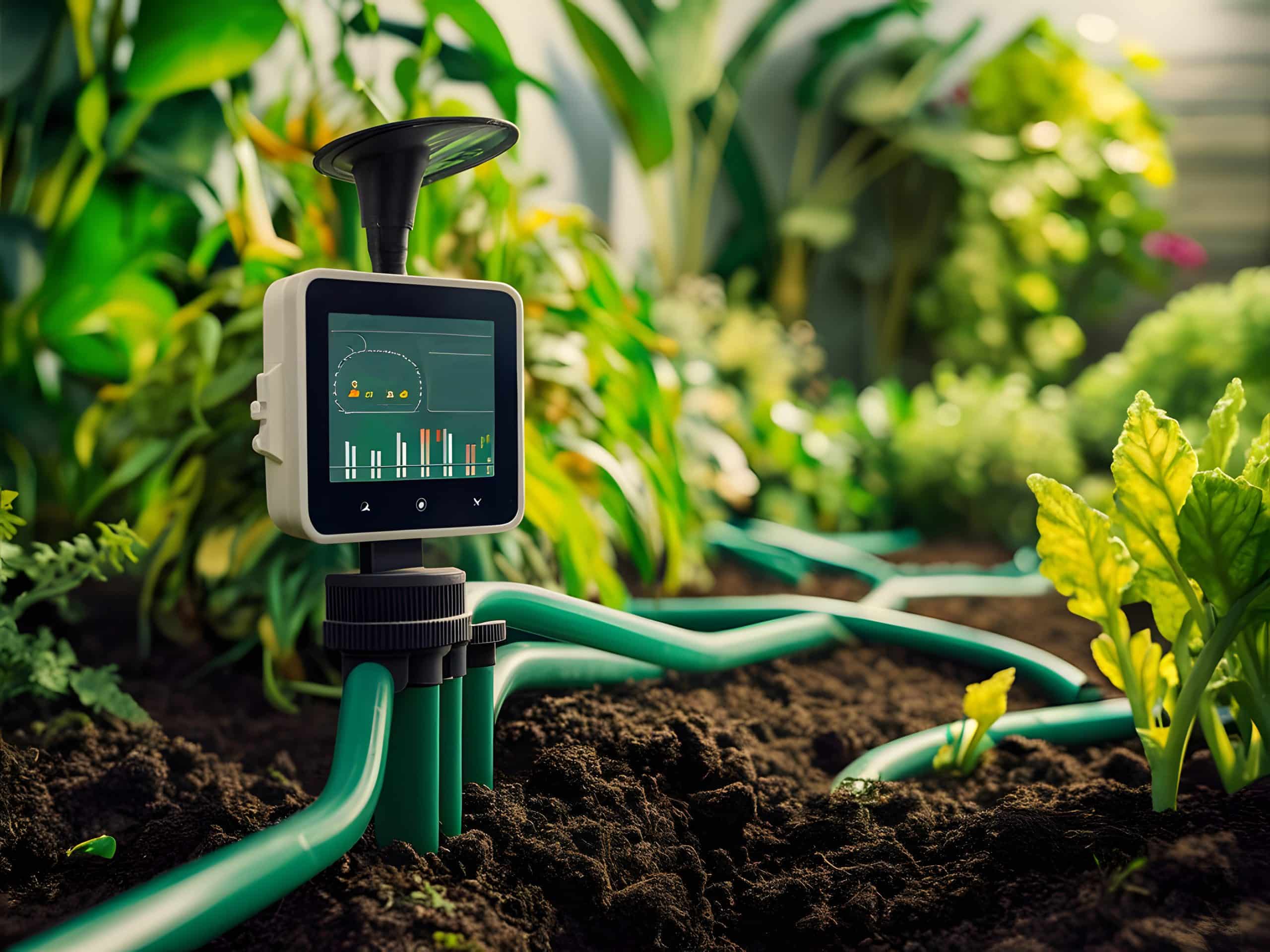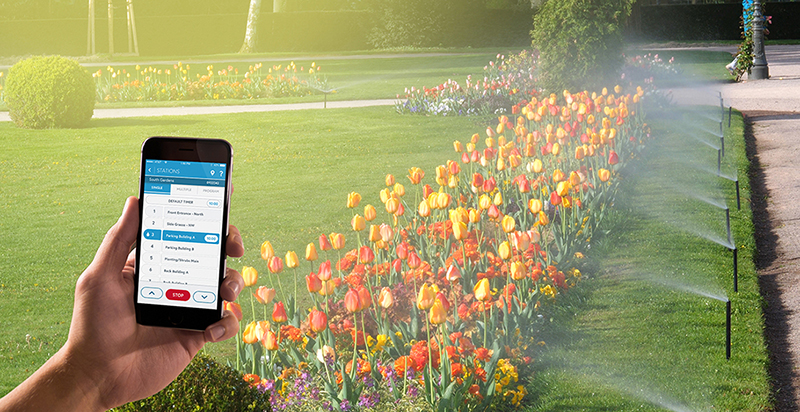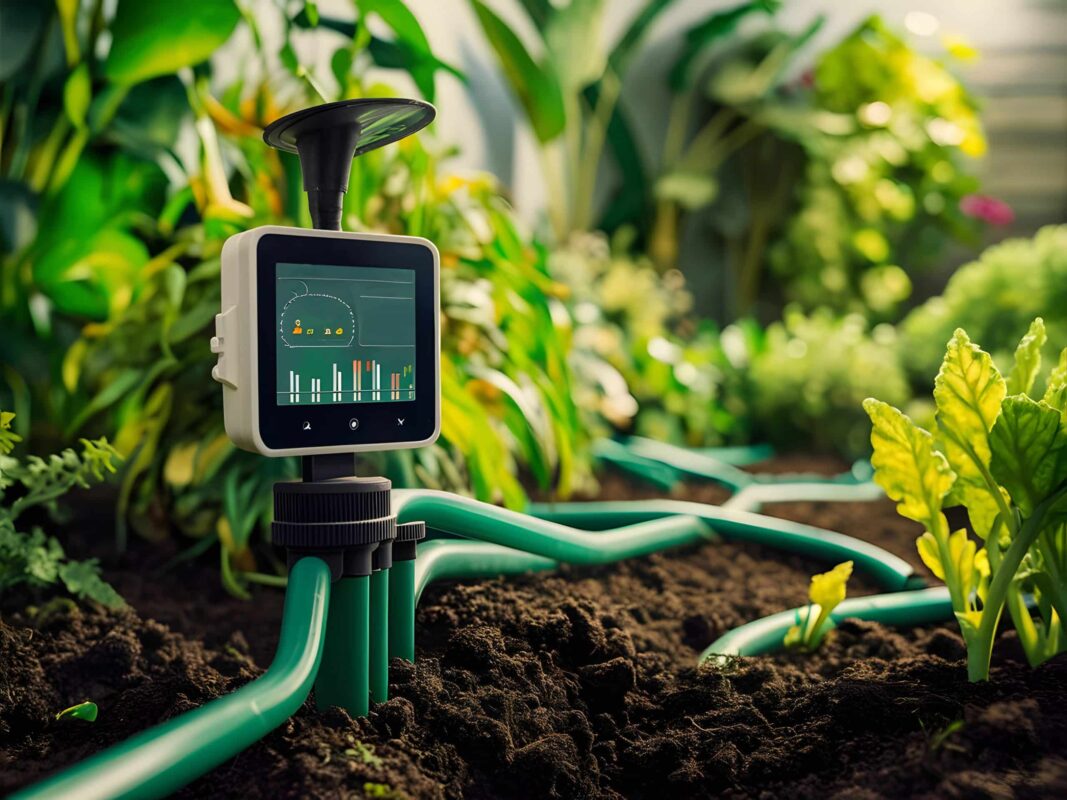Smart Irrigation Systems: Revolutionizing Water Management for Your Lawn and Garden

In the age of technological advancements, smart irrigation systems are emerging as a groundbreaking solution to water conservation and efficient landscape management. Gone are the days of manually adjusting sprinklers or relying on inefficient watering schedules. Smart irrigation systems use data, sensors, and automation to ensure that your lawn or garden receives the optimal amount of water at the right time. This not only helps conserve water but also enhances the health of your plants, reduces water bills, and contributes to a more sustainable environment.
In this guide, we’ll explore what smart irrigation systems are, how they work, the benefits they offer, and how to choose the best system for your needs.
What Is a Smart Irrigation System?
A smart irrigation system is an advanced watering solution that uses technology to optimize the amount of water distributed to plants in your garden or lawn. These systems are designed to automatically adjust watering schedules based on various environmental factors such as weather, soil moisture levels, and plant types. Unlike traditional irrigation systems, which operate on fixed schedules regardless of external conditions, smart irrigation adapts to real-time data, ensuring maximum efficiency.
Key features of a smart irrigation system include:
- Real-time weather data: Integration with weather forecasts to adjust watering based on rainfall or humidity.
- Soil moisture sensors: Measure the moisture levels in the soil to prevent overwatering or underwatering.
- Mobile app control: Control and monitor your irrigation system remotely through your smartphone or tablet.
- Automation: Set schedules, zones, and triggers based on environmental factors or plant needs.
How Does a Smart Irrigation System Work?
Smart irrigation systems rely on various technologies that collect and use data to make informed decisions about when and how much water to apply. Here’s a breakdown of how these systems work:
1. Weather Integration
One of the most important features of smart irrigation is its ability to integrate with local weather data. Many smart systems are linked to weather stations or services that provide real-time weather updates. By receiving information about rainfall, temperature, humidity, and wind speed, these systems can adjust watering schedules to account for any precipitation, ensuring that your lawn isn’t watered unnecessarily after a rainstorm.
For example, if a storm is predicted, the system may automatically skip the scheduled watering to conserve water.
2. Soil Moisture Sensors
Soil moisture sensors are key to ensuring that your plants are receiving just the right amount of water. These sensors detect the moisture levels in the soil and transmit this data to the irrigation system, allowing it to adjust the watering duration accordingly.
- Dry Soil: When the soil moisture is too low, the system will increase watering.
- Saturated Soil: When the soil is sufficiently wet, the system will reduce or stop watering.
This dynamic control helps to prevent overwatering or underwatering, both of which can harm your plants.
3. Mobile App Control
Most modern smart irrigation systems can be controlled and monitored via a mobile app, giving you the flexibility to make adjustments from anywhere. Whether you’re on vacation or at work, you can easily check soil moisture levels, adjust watering schedules, or even receive notifications about system issues or malfunctions.
The app typically displays data about each irrigation zone in your garden, so you can have full visibility and control over your watering needs.

4. Automation and Customization
Smart irrigation systems offer high levels of automation, allowing you to set up watering schedules, zones, and triggers that match your garden’s specific needs. Whether you have a vegetable garden, a flower bed, or a lawn, you can create customized irrigation plans based on plant types, sun exposure, and soil conditions.
- Custom Zones: Divide your yard into zones with different watering requirements.
- Time-Based Scheduling: Set up watering windows for specific times of the day when evaporation rates are lower.
- Event-Based Triggers: Use weather conditions, soil moisture levels, or other data to trigger watering events automatically.
This flexibility ensures that your garden is watered precisely when it needs it, optimizing water use.
Benefits of Smart Irrigation Systems
Smart irrigation systems offer a multitude of benefits that make them an attractive choice for homeowners and businesses looking to improve their water management. Here are some key advantages:
1. Water Conservation
One of the most significant benefits of a smart irrigation system is its ability to conserve water. By only watering when necessary and using precise amounts of water, these systems help reduce water waste. This is particularly important in areas that experience drought conditions or face water restrictions. Smart irrigation helps to ensure that water resources are used efficiently, making it a sustainable choice for landscaping.
2. Cost Savings
Since smart irrigation systems optimize water use, they can help you reduce your water bills. With the precise watering schedules and moisture monitoring capabilities, you avoid overwatering and under-watering, both of which can result in unnecessary costs. In addition, by reducing the need for frequent maintenance and adjustments, you can save on repair and management costs.
3. Healthier Plants
Smart irrigation ensures that your plants are watered correctly, promoting healthier growth. Overwatering and underwatering can stress plants, leading to poor growth and disease. With smart irrigation, your plants receive the perfect amount of water, resulting in stronger, healthier, and more vibrant plants.
4. Convenience and Control
The ability to control and monitor your irrigation system remotely via a smartphone app provides unparalleled convenience. No more adjusting timers or worrying about whether your garden is getting the right amount of water. You can also track water usage and system performance, ensuring everything is running smoothly.
5. Eco-Friendly
In addition to conserving water, smart irrigation systems can reduce energy consumption by eliminating the need for manual intervention and minimizing wasted water. This makes them a more environmentally friendly option compared to traditional irrigation methods.
Types of Smart Irrigation Systems
Smart irrigation systems come in various forms, each offering different features depending on your needs. Some of the most popular types include:
1. Smart Sprinkler Controllers
Smart sprinkler controllers are the most common type of smart irrigation system. They replace traditional irrigation timers and use weather data and soil moisture readings to adjust watering schedules. Popular models include the Rachio 3 Smart Sprinkler Controller and the RainMachine Smart Irrigation Controller.
2. Drip Irrigation Systems
Drip irrigation is highly efficient for watering plants directly at the root level. Many smart irrigation systems offer drip irrigation options, which are ideal for vegetable gardens or flower beds. The Netafim Smart Irrigation system is a popular choice for precision watering.
3. Smart Hose-End Timers
For smaller gardens or areas with fewer plants, smart hose-end timers provide a simple and affordable solution. These timers can be controlled via a mobile app and offer water-saving features like automatic shut-off and customized schedules.
How to Choose the Best Smart Irrigation System for Your Needs
When selecting a smart irrigation system, there are several factors to consider:
1. Yard Size and Layout
Consider the size and layout of your garden. Larger yards may require systems with multiple zones or more advanced controllers to manage different areas effectively.
2. Watering Needs
Different plants have different watering needs. Make sure the system you choose can handle the specific requirements of your lawn, garden, or trees.
3. Connectivity
Check the connectivity options available with the system. Ensure that the system is compatible with your home’s Wi-Fi network, and if you prefer voice control, look for compatibility with platforms like Amazon Alexa or Google Assistant.
4. Budget
There are many smart irrigation systems available at various price points. While premium models offer more advanced features, you can find budget-friendly systems that still deliver efficient water management.
5. Installation
Some systems are easy to install, while others may require professional assistance. Be sure to choose a system that fits your skill level or budget for installation services.
Frequently Asked Questions (FAQs)
Q1: How much water can a smart irrigation system save?
A1: Smart irrigation systems can save up to 50% of water used for irrigation, depending on factors like the weather and soil conditions.
Q2: Can I install a smart irrigation system myself?
A2: Many smart irrigation systems are designed for DIY installation, but if you have a complex setup or prefer professional assistance, installation services are also available.
Q3: Are smart irrigation systems expensive?
A3: While smart irrigation systems have a higher upfront cost compared to traditional systems, they can save money in the long run by reducing water usage and maintenance costs.
Q4: Can smart irrigation systems work with existing sprinklers?
A4: Yes, many smart irrigation systems can be integrated with existing sprinklers. You may just need to replace your old controller with a smart model.
Conclusion
A smart irrigation system is a game-changer for anyone looking to save water, reduce their environmental footprint, and maintain a healthy, thriving garden. Whether you’re looking to conserve water, cut down on utility bills, or simply make your lawn care more convenient, these systems offer a practical and sustainable solution. By integrating weather data, moisture sensors, and mobile control, smart irrigation brings efficiency, customization, and automation right to your fingertips.
Make the smart choice today—upgrade your irrigation system and start saving water and money while enjoying a lush, beautiful landscape
!
For more information on the benefits of smart irrigation systems, visit our blog or explore other smart home technologies that can improve your daily life.


